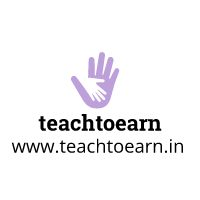Many children seem to do well on paper—but struggle to think independently in today’s exam-obsessed education system, . This heartfelt conversation between a concerned parent and Dr. Malpani uncovers a powerful truth: it’s not marks that define a child’s future, but their ability to ask good questions. Discover why curiosity is the true key to lifelong learning—and how you, as a parent, can nurture it by creating the right environment at home.

Parent: Dr. Malpani, I’m really worried about my daughter. She’s doing well in school—gets decent marks, attends tuition, and finishes all her homework. But when I talk to her, she just repeats what’s in the textbook. It’s like she’s memorising facts without actually understanding them.
Dr. Malpani: You’ve picked up on something very important—and very troubling. The problem isn’t your daughter. It’s the system she’s stuck in. Our education system still rewards rote learning and punishes curiosity.
Parent: But isn’t getting good marks essential? That’s what everyone keeps telling us—teachers, schools, even relatives.
Dr. Malpani: Good marks may open doors, but only for a while. In the real world—especially in a future shaped by AI, automation, and rapid change—what matters far more than memorising answers is the ability to ask good questions.
The Power of Asking Questions
Parent: But why are questions so important?
Dr. Malpani: Because questions drive learning. They reflect curiosity, critical thinking, and the willingness to explore beyond what’s been spoon-fed. Think about it: every invention, every discovery, every breakthrough in science or art started with a question. Why is the sky blue? What if we could talk to someone on the other side of the world? How do we treat a disease no one understands yet?
Our system, unfortunately, does the opposite. It teaches kids to memorise the “right” answer and punishes them for getting it wrong—even when they’re asking the right questions.
Parent: That’s true. My daughter used to be curious when she was younger. Now, she’s scared to even speak up in class.
Dr. Malpani: And that’s tragic. Because curiosity is like a muscle—the less you use it, the weaker it gets. Most schools, in trying to prepare kids for exams, kill that curiosity. Tuition classes are even worse—they turn learning into a mechanical, joyless routine of notes and revisions.
Questions vs. Answers: What Really Matters?
Parent: But isn’t knowledge important too? Don’t they need to know the basics first?
Dr. Malpani: Absolutely! Knowledge forms the foundation. But real education begins when kids ask why that knowledge matters, how it connects to other things, and what if something were done differently.
In fact, the smartest learners don’t just seek answers. They question the answers they’re given. They challenge assumptions. That’s how they learn deeply and meaningfully.
Parent: But how can a child learn like that in the current system?
Dr. Malpani: They usually can’t—not unless you change the environment. Schools focus on producing obedient children who do what they’re told. What we need are independent thinkers who can lead, innovate, and create.
Creating Environments That Reward Inquiry
Parent: So what’s the solution? Should I pull her out of school?
Dr. Malpani: That’s a personal decision—but what’s clear is that we need better alternatives. That’s exactly why we started the Teach to Earn digital learning pod model.
In our pods, we create safe, flexible spaces where children can learn at their own pace. They use a PC to explore freely—watching videos, reading, coding, creating presentations, and yes—asking as many questions as they want, without the fear of being judged or scored.
Parent: But will that be enough to prepare her for the future?
Dr. Malpani: More than enough! In fact, it’s the best preparation possible. When children learn to teach themselves, they don’t just learn content—they learn how to learn. They become adaptive, confident, and self-motivated. These are skills that will serve them for life, far beyond any exam.
And the truth is, the jobs of the future won’t go to those who memorise textbook definitions. They’ll go to those who can ask:
- What’s the real problem here?
- How can we solve it differently?
- Who else is affected?
- What hasn’t been tried yet?
What You Can Do as a Parent ?
Parent: But I’m not a teacher or a tech expert. How can I create such an environment at home?
Dr. Malpani: You don’t need to be either. All you need is the intention to empower your child. With just one educational PC and basic internet, you can start your own Teach to Earn pod. We’ll guide you step-by-step. You don’t have to teach—you just have to supervise, encourage, and create a space where your child can think freely.
Parent: That sounds doable. But what about exams? Won’t she fall behind?
Dr. Malpani: On the contrary, many of our pod learners do better in exams—because they understand the material deeply instead of cramming it. But more importantly, they develop confidence, communication skills, digital literacy, and self-direction. These are far more valuable than just getting 90% in social studies.
Ending the Fear of Being Wrong
Parent: You’ve given me a lot to think about. I wish schools would encourage this kind of learning too.
Dr. Malpani: So do I. But until they change, we need to take the lead. Our children deserve better than a system that rewards silence and penalises curiosity.
Let’s start celebrating questions, not just correct answers. Because it’s the child who asks “Why?” and “What if?” who will go on to change the world.
Dr. Malpani: Take matters in your own hands by starting your own digital learning pod — your children will not get a second chance!
👉 https://www.teachtoearn.in/start-a-teach-to-earn-learning-pod/
